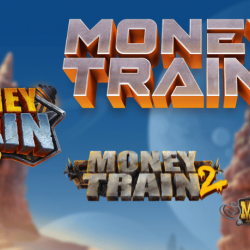Is Metaverse Gambling Already Dead?

It has been nearly two full years since Mark Zuckerberg walked onto the stage at Connect 2021 and revealed his plans for the Metaverse. The concept, he promised, while a goofy animation of himself and some robots playing poker on a virtual spaceship filled the screen, would replace the internet, providing us with a new virtual space to socialize, keep fit, and more.
The gambling industry, often quick to respond to new technological advances, threw its arms around the idea, but with two years more experience and a lot of money spent, has the Metaverse really delivered?
Gambling in the Metaverse
In February 2022, I explored the impact that the Metaverse could have on the gambling industry. At the time, some major players had latched onto the idea of gambling in virtual realities. The Crypto boom of November 2021 was still fresh in everybody’s minds, and the opportunities appeared endless.
It felt as though we were hurtling towards a brave new world, one that was going to change the way we did everything. The movement felt like it was not stopping and that, within a matter of years, we would all be playing poker at virtual casinos with our headsets on. And then, everything just seemed to disappear.
Despite billions being pumped into metaverse spaces like Sandbox and Decentraland, players just did not turn their attention towards them. Sand Box’s first-ever virtual casino failed to spark the debate and hype in the iGaming industry that people had expected, and projects were fizzling out extraordinarily fast.
Huge Losses
This lack of interest from users was also reflected in the value and number of users in these universes. In November 2021, shortly after the announcement of the Metaverse, the combined value of the big four Metaverse currencies SAND, AXS, ENJ, and MANA was around $16 billion. At the start of September this year, they were at $1.23 billion. Now, I’m no accountant, but these numbers do not make pretty reading.
User rates have also been dropping, with Decentraland and the Sandbox seeing significant dips. It was recently reported that there were only 3.29k different users in the Sandbox over a 30-day period earlier this year. These numbers are alarming, and the companies are really struggling to get themselves into the public consciousness, let alone on the radars of gamblers.
Some critics have even suggested the death tolls are ringing for these spaces, with live streams and involvement continuing to drop every day. Many companies have invested millions into these spaces and are not seeing returns, including gambling companies.
Too Much, Too Soon?
So how has this happened, and does this mean we are not likely to all be gambling in the Metaverse in the near future? It is hard to pinpoint exactly how this swing happened so quickly, but I can see a number of factors that might have impacted it.
Firstly, the timing of the Metaverse announcement. In October 2021, we had all spent a lot of time in the house in the house in the previous 18 months. Many people had taken to crypto-investment as a way to make easy money, and NFTs were very much in vogue. This led to a bull run, with companies investing a lot of capital in the metaverse and other web3/blockchain verticals.
This hype, however, was never really backed by the general public. Companies assumed gamblers would want to play in the Metaverse, but did that demand ever really exist, or was it simply media hype and a bullish market fuelled by corporations watching a slice of the future? It is hard to say, but I have a feeling it was the latter.
As a gambler myself, the idea of betting in virtual casinos does appeal, but I also do not feel compelled to do so, especially not in the embryonic stages of these platforms. Live casino has proven to be an excellent middle ground on this front, and I don’t necessarily feel the need to risk my money further by investing in NFTs and cryptos on top of gambling.
The lack of clear regulation on these issues also, rightfully, makes a lot of gamblers cautious. Cryptos are extremely volatile, and we have seen so many crypto and NFT-related gambling set-ups fail in such a short space of time, that the idea of relying on a universe that is built around them does not immediately grab me.
The gambling industry has also been keeping people elsewhere. The continued expansion of the American markets and the UK White Paper have dominated headlines and industry discussion, taking away virtual column inches from the metaverse movement.
The Future
Two years ago, the Metaverse felt like an exciting new adventure - something that would change not only the gambling industry but the way we lived our lives as a whole. In the 48 months since, it has lost an awful lot of momentum.
There is still room for some exciting projects within the space, some companies are using NFTs for things like horse racing, allowing people to purchase their own and be involved. These kinds of steps feel realistic and can potentially get gamblers involved. Floating around virtual space stations playing poker with Mark Zuckerberg and aliens, though? That feels much further away.
This article delivers the thoughts and opinions of the author, and it doesn't represent the stance of GoodLuckMate.















-250x250.png?v=7)





-414x318.png?v=7)






